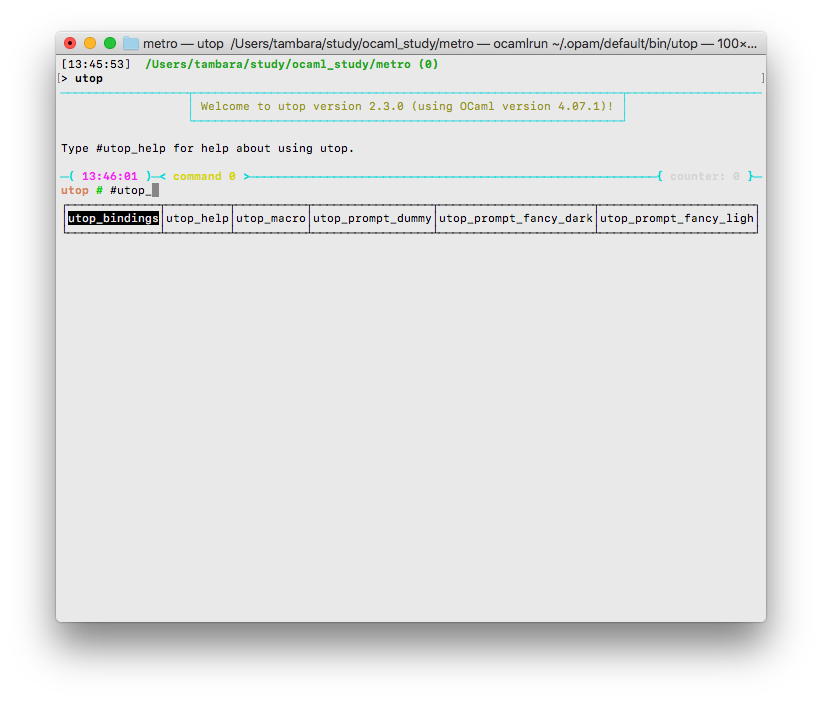さて、次はファイル名や表示行数を指定できるように修正しよう。
引数は、Cのargv相当がSys.argvに入ってくるが、自分でパースするのはめんどうだ。 もちろん、標準ライブラリでパースできる。Argモジュールを使う。
以下の手順を踏む。
- 引数で指定された情報を格納する参照を定義する
- どんな引数がくるのか、定義を作る
- パースする
詳しいことは、 http://caml.inria.fr/pub/docs/manual-ocaml/libref/Arg.html を読む。 手順2のanon_funに何を指定するのかわかりにくいが、要するにフラグ無しの引数の扱いを指定すればいい。
tail -n 5 filename に対応したかったら、
let n = ref 5 (* 表示する行数 *)
let inputfile = ref ""
let spec = [("-n", Arg.Set_int n, "Number of lines")]
let () = Arg.parse spec (fun s -> inputfile := s) ""
(* ファイルを全行読み込む *)
let fi = open_in !inputfile
let lines =
let lst = ref [] in
let eof = ref false in
while not !eof do
try lst := !lst @ [(input_line fi)] with End_of_file -> eof := true
done;
!lst
let () = close_in fi
(* 行のリストの最後n行だけ取り出す*)
let rec tail lst = match lst with
[] -> []
| first :: rest ->
let last = tail rest in
if List.length last > !n - 1 then last else first :: last
let () = List.iter print_endline (tail lines)
これでOK。以外とバリバリrefを使うのである(笑)。

